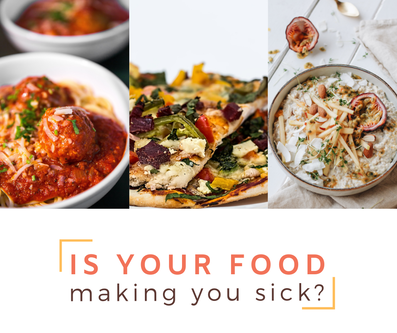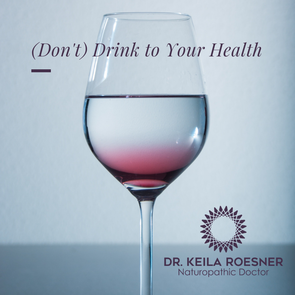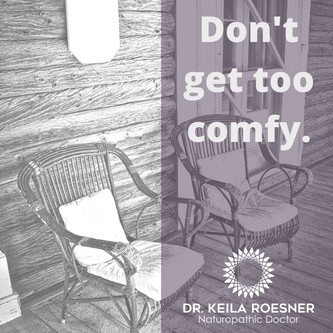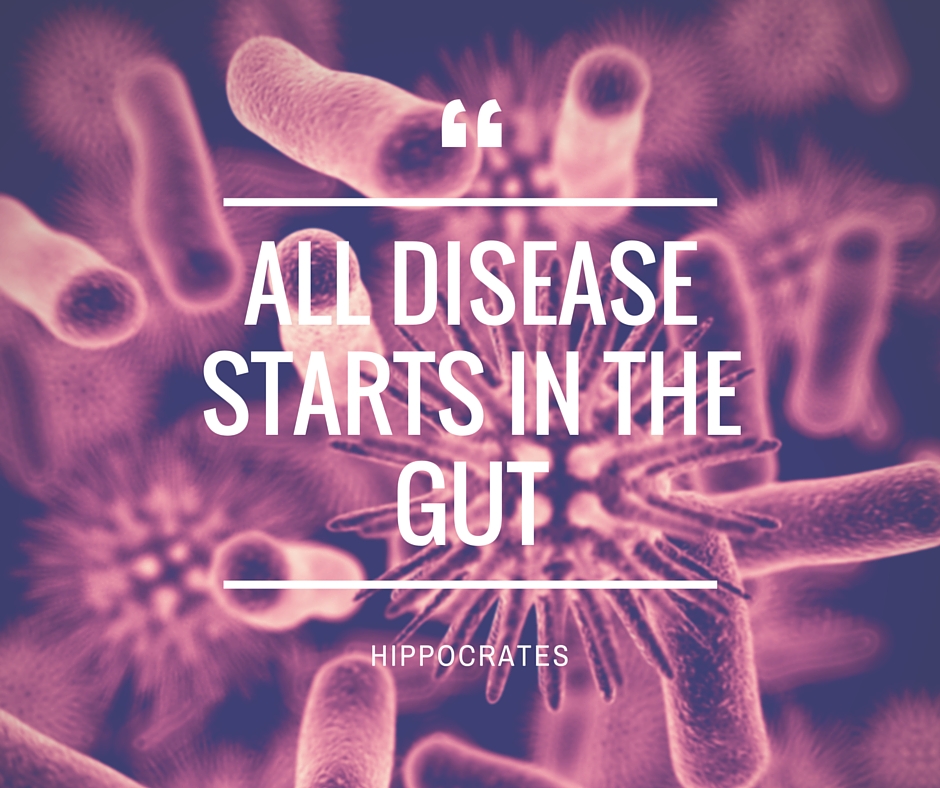Keep Your Metabolism Strong and Hormones Balanced Over The Holidays – A Naturopathic Perspective12/18/2019  Do you have big plans for January? Many of our patients say they’d like to take control of their health in 2020 (New Year, New You, right?). That often includes losing some extra pounds. However, it’s always important not to get caught up in the numbers on the scale. Instead, a good alternative goal is to focus on lowering your body fat (but only if that would help your general health) and raising your energy levels. In other words, your goal should always be to improve your overall quality of life, not to chase after an often-elusive number on a scale. No matter why you want to lose weight, it’s important to approach your New Year’s resolution with a strategy. That will raise your odds of success. (Here’s a sobering fact: About 80 percent of New Year’s resolutions are abandoned by February.) The Run-Up to the New Year Think about it. We often coast through December, eating, drinking, and neglecting our usual fitness routine. Then January arrives and we expect our body to adjust to an austere new regime. It’s no wonder that many people give up. Believe it or not, it’s possible to prime your body to get ready for January’s resolutions/yourreallife while still enjoying the holidays. That includes revving up your metabolism so it’s ready to deal with dietary changes. And it’s even possible to do this during the busy month of December. Here are some steps that can help. 7 Ways to Avoid Packing On Extra Pounds This Holiday Season
Yes, improving your metabolism can feel like a daunting task this time of the year. However, taking a few simple steps now can help get ready to meet your New Year’s resolutions head on! If you’re not sure how to begin with all these tips, the best plan is to speak with an expert! We’d be happy to help you create a unique plan that suits you and would love to have a complimentary Health Discovery Session with you. Sources:
1 Comment
 You’re careful about your health. You do your best to eat well, and you pay attention to the ways that your diet affects your energy levels....but something seems off. You’re experiencing annoying symptoms that you can’t explain. You’re often gassy and bloated, your skin may not be clear and glowing anymore, you may be ready for a nap after a meal and you wish you could remember where you put your keys. Why does your memory feel so foggy? These issues are frustrating (and often embarrassing) and they’re also very common. Many patients that come to see me are already living a fairly healthy lifestyle, but are baffled by continuing digestive issues, mysterious rashes, and low energy levels. If this sounds familiar, it may be time to take a good look at your diet. Even a “healthy” food can make you sick if your body is sensitive to it, even if you're eaten it your whole life without issues until now. For many, the food mystery becomes both frustrating and overwhelming when trying to understand what foods are nourishing you and not making you feel terrible. The good news is that you may not have to look very far to make changes that relieve your symptoms. With a bit of detective work, and a bit of help, you can map out a dietary plan that restores your well being. What are the Symptoms of Food Sensitivity? Food sensitivities can be tricky to diagnose. Symptoms can vary widely from person to person and can even be different depending on what else is happening in your body. For example, you might respond differently at different stages of your menstrual cycle, or if you’ve been under more stress or not sleeping as well. Food sensitivities can cause or contribute to:
Another reason why a food sensitivity is often a missed diagnosis is that these symptoms can be delayed up to 72 hours after a meal, so many people don’t make the connection between what they ate and how they feel. Even the most incredibly observant people can find it difficult to notice that they feel brain fog 3 days after eating a “normal” food. Similarly, it’s difficult to measure how many people suffer from food sensitivities because a lot of us don’t seek medical help, figuring that it’s “normal” to feel gassy and tired all of the time. In fact, conventional medical practitioners can be skeptical about food sensitivity symptoms, which can lead to frustration for patients. But it doesn’t have to be this way. What Causes Food Sensitivities? It’s important to recognize the difference between food allergies, food intolerances, and food sensitivities. Food allergies are immune reactions. After eating a certain food, your body’s immune system launches an attack by making its own protein, called immunoglobulin E (IgE). The next time you consume that food, your body is ready to attack again. The IgE causes your body to release a chemical called histamine, which triggers the physical symptoms of an allergic reaction. This is the type of allergy reaction one has to pollens and dander. With food, it can cause frightening anaphylaxis reactions. A food intolerance occurs when the body loses the ability to produce a certain digestive enzyme. Lactose intolerance occurs when the body cannot produce the lactase enzyme, and fructose intolerance occurs when a body cannot produce the fructase enzyme. Eating foods with lactose or fructose will then cause gas/bloating and diarrhea to occur (and can be a sign of Small Intestinal Bacterial Overgrowth).. A food sensitivity reaction occurs when you eat a food and it forms an antigen/antibody reaction. That is, a different part of your immune system binds to the food, the IgG reaction. Those immune complexes can cause intestinal and systemic problems in the body and mind. There are specialty labs that can detect this reaction. In our practice, we use Alletess Labs to identify these reactions.... and one blood draw can uncover up to 184 food sensitivity reactions! If we continue to eat that food sensitivity, the lining of the gut can become inflamed and damaged. Eventually, it can become permeable, so the undigested material “leaks” into the bloodstream. Not surprisingly, this is called “leaky gut” syndrome or intestinal hyperpermeability. What is the root cause of food sensitivities? And why are they becoming increasingly common? There are many medical reasons:
Which Foods Can Cause Food Sensitivities? Uncovering food sensitivities is a fantastic reason for seeing a Naturopathic Doctor – we have the tools to help identify if a particular food is making you sick. In addition, medical supervision can ensure your approach to food remains healthy and balanced. Research suggests that food sensitivities can be a trigger for disordered eating in some people. After all, if food is causing you pain, but you’re not sure which foods are to blame, it’s easy to associate your diet with negative experiences. How Can You Treat Food Sensitivities? At our office, we identify and address foods sensitivities with this approach:
Sometimes food sensitivities are only the tip of the iceberg and we have to go deeper and look to other causes of your symptoms. You can read more about that here. Uncovering food sensitivities is a truly a game-changer for many of our patients. If you suspect that something is off, I would love to offer you a complimentary Health Discovery session to see if our approach is right for you. Sources:
 A glass of wine with dinner. A beer after a hard day of work. It’s not hard to integrate an occasional drink with a healthy lifestyle. Whole genres of music are written essentially about drinking (I come from a country music family!). In recent years, we’ve read that red wine is rich with antioxidants, and that an occasional beer can raise “good” cholesterol or stimulate lactation for breastfeeding mamas. But results from a new study suggest that even moderate alcohol consumption - the kind we tell ourselves is healthy - may actually be detrimental to our health. In other words, the much-heralded health benefits of drinking don’t outweigh the risks. As a result, there is no safe level of alcohol consumption. A recently published research study looks at data collected in almost 700 studies, spanning 195 countries and territories. Some of the findings are startling:
The authors of the study are firm in their conclusion: “By evaluating all associated relative risks for alcohol use, we found that consuming zero standard drinks daily minimizes the overall risk to health.” In other words, the only safe amount of drinks is none at all. This finding differs from many earlier studies, which often concluded that moderate drinking was the best approach. Why did this study reach a more decisive conclusion than previous examinations of alcohol’s effect on health? Several factors come into play. This study was careful to consider the ways they measured consumption. For example, researchers looked at regional variations in alcohol consumption that could be attributed to things like tourism. In addition, the study looked at alcohol’s impact on 23 different health-related problems. For some of those problems (such as heart disease), mild alcohol consumption had a positive effect. But that positive effect was balanced by a greater negative impact on other health issues (cancer is a strong example). What does this mean for you? If you drink, should you stop? Alcohol consumption is a very personal decision. This study looked at the big picture, worldwide. It was not studying individuals, but rather analyzing vast amounts of data previously collected, specifically looking at the risks for the 23 health issues. That data was conclusive. But it’s up to you how you apply it to your own life. This latest study can’t, for example, tell you if it’s OK to have some wine for New Year’s given your own unique genetics and other lifestyle factors. One thing is clear: If you’ve told yourself that drinking is healthy, you may want to reconsider that rationale. That doesn’t necessarily mean you must immediately quit. However in deciding whether or not alcohol is something you want in your life, it’s best to be realistic about the health risks. If you’re wondering about alcohol, talk to a healthcare practitioner. And be upfront about your drinking during the visit. Many people underreport how much they drink, but it’s best to be honest. You want to have an open discussion about all of your health concerns. Remember that healthcare providers aren’t looking to judge you: they want to work with you to create your best life. You also want to look at your own medical history and perhaps check out more specific studies. For example, another recently published study concluded that alcohol is the biggest controllable risk factor for dementia. If you have other dementia risk factors that are out of your control, such as a genetic history, you may want take action on the things you can control. Similarly, if you have a history of depression, consider alcohol’s impact on mental health. If you are trying to control your weight, the extra calories of alcohol aren’t going to help. Alcohol can also lower your judgment and keep you from making your best decisions. Alcohol intake may also increase your risk of estrogen dominance, and is a well-established risk factor for breast cancer. Some patients express frustration at the different results they see in health studies: One minute something is good for you, then suddenly we need to avoid it! Studies on alcohol use can be proof that when we read an eye-catching health-related headline, we need to look beyond the numbers. One thing to keep in mind is that the media will typically seize the most dramatic sound bite, although it’s impossible to always convey the nuances of a well-run scientific study in a short headline. For example, a news story doesn’t always mention who funded the study. For the record, the Lancet study on alcohol safety was funded by the Bill and Melinda Gates Foundation, while some others that emphasized alcohol’s benefits were funded by companies who sell alcohol. That doesn’t necessarily mean the studies are false, but we should all remember the funders have a vested interest in how the results are reported. Follow the money! As well, correlation doesn’t always equal causation. That’s sometimes hard to capture in reporting large studies. In fact there are studies that show that Resveratrol an antioxidant found in red wine is beneficial to your health however if you have other health issues like digestion.htmlpoor gut function, low energy, sleep issues and more, alcohol will likely have negative impacts and could make your health issues worse. One can absolutely gather the benefits of resveratrol by eating organic grapes with the skin on, rather than drinking wine, without negatively affecting other health issues - but that doesn't make for sexy headlines! Whenever you’re confused about a health issue, the best approach is to consider it from a sample study of one: yourself. That means talking to a healthcare provider about your own personal history and choices and your current health concerns. We can help you sort through all of the information you face every day and figure out what’s best for your unique body, in fact we are experts in doing just that! Book your complimentary Health Discovery Consult to discuss YOUR unique health goals. References  On average, how many hours a day do you spend sitting, uninterrupted? One hour? Two hours? Three…or more? Our ancient ancestors spent much of their time on the move, hunting and gathering to serve their basic needs, as well as more play and family time. Obviously, the balance between movement and fuel has shifted dramatically over time, most notably since the technological revolution. Unlike our ancestors, we no longer search for food. Instead, we are now on a quest for time, as hours fly by while we’re hunched over a keyboard. On an average day, many of us are likely sitting more than we are moving and consuming more calories than we are burning. Many of us regularly put in eight-hour workdays seated at a desk – sometimes even more. We get headaches and neck tension and need to see our massage therapist more often. We then go home and unwind on the couch, binge-watching our favourite shows. The hours begin to add up. Maybe we make a little time to fit in some exercise each day; however, with more conveniences at our fingertips, we can do a lot more while moving a lot less. The longer we sit, the more our bodies begin to feel tight, tired and sore. It’s clear that too much sitting isn’t good for us. But did you know that it can even lead to earlier mortality? Sitting and Premature Death That’s right…too much sitting can kill you! In fact, some are saying that “sitting is the new smoking” because its impact is so significant. According to recent research from the Journal of the American Heart Association, prolonged sitting presents similar health risks as smoking, such as heart disease, lung cancer, and diabetes. It also increases premature death by about 50 percent! Even more surprising, too much sitting increases your risk for an early death regardless of your fitness level or other lifestyle habits. You simply cannot undo hours of sitting with a 20 minute walk (although you should still keeping walking). But sitting isn’t just bad for your heart or metabolism; it is also bad for your brain! Researchers at the University of California have discovered a connection between sedentary behaviour and thinning regions in the brain that is critical to new memory formation. So, what if your job requires you to be at a desk, all day, every day? Are you supposed to quit? Well, of course, that’s not practical. However, there are a few simple things you can do to ensure that you keep your body regularly moving for a longer, healthier life. Tips to Sit Less & Live Longer
Do you spend excessive amounts of time sitting? Do you experience any health problems that you think could be related to a sedentary lifestyle? Let’s chat and get to the root of your health issues. Book an appointment with our clinic, and together we will find ways to improve your overall health and well-being so that you can live your life to its fullest. Call 519-275-2187 ext. 7 or Book Online to get started. In health, Dr. Keila Roesner BHSc ND
References:
 7 Steps for Optimizing Your Vitamin D and Enjoying the Sun (safely). Keila Roesner ND. 7 Steps for Optimizing Your Vitamin D and Enjoying the Sun (safely). Keila Roesner ND. I was on away on a girls’ weekend recently. A gorgeous sunny day exploring Niagara wine country (this ND enjoys a glass of wine too!), laughing our butts off and trying not to fall off our bikes. It was a perfect opportunity to work on my “base tan” for the year. As a fair-skinned gal of Irish descent… I’m prone to grow freckles and get very very pink. Unlike my husband who gets a gorgeous tan every year, I have to be careful. But I certainly don’t avoid the sun. Ever. But wait, isn’t the sun the root of all evil? Skin cancer, melanoma and awful peeling skin? If the sun going to kill me… how come my ancestors survived?  The link here is Vitamin D. Vitamin D is an essential hormone and we are designed to get lots of it by being outside in the sun, moving around outdoors and enjoying the world around us. The challenge is that many of us spend our days inside working avoiding the sun between 10-2 pm, wearing sunscreen with a high SPF every day under our makeup and long light layers we can become very deficient. This is a big deal. Vitamin D is critical for our immune system. Many of us know about Vitamin D for bone health - Vitamin D helps regulate calcium and phosphorus absorption and excretion in the body. This is why many products are fortified with a synthetic version. Run of the mill health issues like coughs, colds, allergies, flus and other common issues are related to low Vitamin D levels that compromise our immune function. Vitamin D also keeps our immune system communicating so that we reduce our risk of more serious issues like Type 2 Diabetes, osteoporosis, heart disease, cancers and other autoimmune diseases like multiple sclerosis and rheumatoid arthritis. Low Vitamin D is also related to thyroid disease, mental health issues and hormone health. Adequate vitamin D is essential for digestive health as well, and when we are deficient we get leaky gut. When we lack Vitamin D our immune system loses touch with itself and we are more likely to get sick. Who is at risk?
Where can you get it?
Next Steps:
Vitamin D keeps your brain sharp, skin glowing, immune system humming along and is an essential part of your life. Practice safe sun, but don't fear it! Keep on the sunny side,  What can help ward off a cold, lower blood pressure, reduce cholesterol, improve blood glucose and help you lose weight… and is also deliciously addictive? Garlic and Olive Oil. The basis of a Mediterranean diet. When combined, these two pantry staples make a luxurious, flavorful condiment that is pretty wicked. As long as I can remember, my father grew the BEST garlic. Every year my mother would peel baskets full of fresh heads of garlic and freeze them for easy use while cooking for the rest of the year. She would often fill a mason jar with the fresh peeled cloves and olive oil so that I wouldn’t have to buy sub-par, bland garlic. When I was at Naturopathic College, I fell in love with shawarma. Roasted meat, pickled veggies… and the heavenly sauces. Nothing better at the end of a long day. It always seemed so complicated to make so I never really tried until a few years ago. My first trial? The addictive white garlicky sauce call toum… or as I call it “Crack Sauce”. It is seriously my favorite sauce to put on almost anything. This is by far the easiest and most authentic recipe I’ve tried and it’s packed with heart-healthy olive oil and garlic. You need:
Here’s what you do:
This sauce works beautifully with roasted meat and veggies or fish. Store in a sealed contained in the fridge for up to two weeks. Eat liberally during the cold months to help keep your immune system strong. Want to really reduce your risk of getting sick? Sign up for my natural Cold & Flu Prevention program. Have YOU ever tried Lebanese Garlic sauce? Comment below! In health, Dr. Keila Roesner BHSc ND
References
 When the air starts to get a little chilly and you have a tickly in your throat… and your first thought is “Oh crap..!” what do you do? When there’s “something going around” and everyone around you has a cold, you might be exposed to any of the following viruses: Human Rhinovirus (over 100 strains!), Coronovirus (only about 5 infect humans), Human Parainfluenza Viruses, Adenoviruses and Respiratory Synctial Viruses. While there are plenty of folk remedies out there to ward off the common cold… some more effective than others. As a Naturopathic Doctor, I love working with herbs to help support the immune system, reduce congestion and speed recovery time. My favorite herbs to help fight off the common (but inconvenient!) cold include ginger, Echinacea, garlic, and andrographis. Ginger has long been used in Asia as a “warming” spice to improve circulation. Clinical studies have proven ginger to have some antiviral properties, can be effective against arthritis pain and inflammation and can be helpful for low appetite and nausea. Ginger can also help decrease menstrual cramps! And it’s always nice to sip on something warm! You need:
Here’s what you do:
Want to really reduce your risk of getting sick? Sign up for my natural Cold & Flu Support Program. In health, Dr. Keila Roesner BHSc ND
References
 Your body is ALWAYS trying to communicate with you. The problem is that most of us get so busy that we forget how to listen… so our body needs to scream to get us to pay attention. I hear it all the time. “But Dr. Keila, I’m pretty healthy..”! Meanwhile, you may be taking a few prescription medications to control your blood pressure, thyroid and that random rash that comes and goes. TUMS are in your medicine cabinet and you carry Tylenol in your purse all the time. But that’s all normal, right? Nope. Not at all. There is a BIG difference between common and normal. Common is taking a few prescription medications, having digestive issues and bad knees. Normal is having a good night’s rest, waking with energy and not requiring caffeine. Normal is being able to eat food without feeling awful afterwards, and almost never getting heartburn or headaches. Big difference. Sometimes our body needs a reset. To clear the clutter and figure out what actually is going on. Here are 10 major signs your body is not functioning “normally” (even though they may be common!).
A good detox should help you address all of these things. It is not meant to “fix” things, but to help your body reset and tune out some of the noise so that you can actually figure out what the heck is going on. Do any of these sound like you? Comment below! If you are tired of these common, but definitely NOT normal signs, here’s three free you can do:
If you found this article interesting please share. In health,
Irritable Bowel Syndrome was traditionally a "diagnosis of exclusion" and often considered if a colonoscopy (checks the colon) and endoscopy (checks the esophagus and stomach) look normal. Basically this means that your physician has hopefully ruled out the scary things like Crohn's disease, ulcerative colitis, and colon cancer and while your digestive system is a mess, you are "normal and healthy".
Time to call B.S. Irritable Bowel Syndrome: constipation, diarrhea, urgent runs to the bathroom, 3 months pregnant food baby bloating, gas and pain are anything BUT normal. In our previous posts we have discussed some of the most common causes of IBS and some basics to help get you feeling better. Personally, I believe that the more information we have, the better you will do. With that information you can create a logical plan to feel better. When you feel better you can work more effectively, spend better quality time with your family and spend less time feeling awful. While every person is different, here are the 6 most common tests I recommend anyone with Irritable Bowel Syndrome consider: The Basics:
Specialized Tests:
When you are armed with the right information you can stop wasting time running between doctor's visits, trying expensive supplements that don't work and medications that create other nasty side effects. With the right information you can start feeling better. If you are ready to start feeling better, please contact me to book your complimentary Health Discovery Session. In health,  What if Irritable Bowel Syndrome (IBS) wasn't "just in your head?". This may seem revolutionary for many physicians... and people that don't have IBS. Anyone living with IBS knows it's true. Nobody wants to be bathroom bound when they try to leave the house, or have to scan a restaurant menu frantically looking for the one item that won't cause them pain or embarrassing gas within an hour. Well, it's true. Small Intestinal Bowel Overgrowth (SIBO) is estimated to be the cause of anywhere from 40-85% or more cases of IBS. Clinically, I would say that this number is even higher. Your Gut is a Garden There are several types of bacteria within the digestive system. The particular species depend on things like your genetics, your birth type (hospital, home birth, vaginal, C-section), breast versus formula feeding, your diet, medications and stress. They can change over time and the unique combination can markedly affect how you feel. It can be helpful to classify human bacteria into three categories:
Much like a garden, there are a combination of plants that you want like tomatoes, sunflowers, parsley (healthy bacteria), species that show up that can take over if not contained like mint, orange lilies (commensals) and then there are invasive weeds like bindweed, thistles (pathogenic bacteria). Every garden will have a combination of all of these. As in the human digestive system, we want the balance to be tipped in favour of the helpful species, so that the neutral species can exist in manageable amounts, and hopefully ultimately crowd out the weeds. A diligent gardener can also go a long way. Normally, the majority of bacteria within the digestive system reside within the large intestine where they work on the food you're digesting to produce Vitamins B1, B2, B6, B12 and K2 as well as other substances. Since we have 10 times as many bacterial cells in our body as we have human cells, even a small alteration in our bacterial garden can change our landscapes dramatically. Our In House Gardener: The Migrating Motor Complex (MMC) The MMC coordinates electrical wave patterns every 90-120 between meals that sweeps through the stomach and small intestine to helps propel food and bacteria from the ileum (the end segment of the small intestine) to the large intestine. In order to function properly, our body needs to have a break between meals. In SIBO, these bacteria can migrate backwards, up into the small intestine which normally has far fewer bacteria. This migration can occur with intestinal permeability, certain medications, inflammatory bowel disease (Ulcerative Colitis, Crohn's Disease), Celiac disease, and low stomach acid. Because competition is less fierce in the small intestine than in the large intestine [Read my previous blog here to review], these bacteria can settle in, replicate and grow without being crowded. This is like freshly tilling your garden and then going on vacation for two weeks only to find that your neighbour's weeds crept under the fence and have taken over. Now you have thistles that are six feet tall. The problem is that now you have bacteria existing in high amounts where they would not normally be and they are now crowding out healthy bacteria, interfering with your crop and attracting pests. The overgrowth can be a combination of healthy, commensal or pathogenic bacteria.... it doesn't really matter because you've got a forest on your hands. This overgrowth is what contributes to much of the discomfort of Irritable Bowel Syndrome. Have you ever noticed that flowers are easily pulled but weeds have deep roots? Same story here. The bacteria that takes hold likes to stick around and make a mess. It can throw off the MMC, and instead of helping to digest your food it ferments it. Fermentation is the process of converting sugars in foods to gases or alcohol, as in beer, wine and sourdough bread. Our bodies are not designed to ferment, and when we do, we bloat. We get gas pains and "I swear I'm not 3 months pregnant!" food babies after eating. Because the food is not breaking down properly, we also get intestinal permeability. We are more likely to have other problems too:
Sound familiar? In our next blog post, we are going to be covering the key signs to watch out for to tell if you have SIBO and what you can do about it. If you found this post helpful, please share with your friends and family! In happy digestive health, Dr. Keila
References
|
Top 75 Naturopath Blogs & Websites For Naturopathic DoctorsAuthorDr. Keila Roesner is a Naturopathic Doctor. When not treating patients she is also an enthusiastic barefoot-strolling, music-loving, yoga-doing kitchen wiz - who also happens to be a wrestling fan. Categories
All
|
Let us take you from hormonal to whole.
|
Dr. Keila Roesner, BHSc ND
Naturopathic Doctor, Hormone Warrior and Your Wellness Cheerleader 247 Church Street, Stratford ON N5A 2R7 (519) 273-0900 [email protected] |
|
















 RSS Feed
RSS Feed